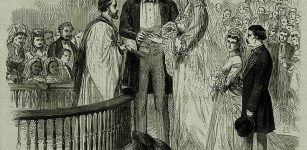On This Day In History: Russian Writer, Poet, Critic Nikolay Gogol Died – On Mar 4, 1852
AncientPages.com - On March 4, 1852, the prominent Russian writer, playwright, poet, critic, and publicist of the 19th century, Nikolay Gogol, died.
The story of Nikolay Gogol's death has always been shrouded in mystery.
Monument of young Gogol on Andreevsky Descent in Kyiv. Image credit: CC BY SA 4.0
Gogol had always been haunted by the fear of death or falling into a lethargic sleep and being buried alive.
He never slept lying down for ten years, only took naps and cuddled in an armchair. In a letter to a friend, he requested that his body be committed to the ground only after it showed obvious signs of decay.
Gogol had been sick for almost half his life and consistently due to unknown causes. His illness was very likely of psychiatric origin. He often experienced euphoria, and during moments of depression, he would lie down without taking his clothes off; he would refuse food and continue to lie motionless for hours. To fight depression, Gogol tried traveling, but it didn't help.
Being very religious, he intensified his relationship with a church elder, Matvey Konstantinovsky, whom he had known for several years. However, Father Matvey 's advice did not help him; moreover, exaggerated ascetic practices undermined his health and plunged him into a more profound depression.
Following Father Matvey's advice to renounce literature, Gogol burned the second part of his novel 'Dead Souls,' went to bed, started self-starvation, and died in great pain nine days later.
Nikolay Gogol was buried at the Danilov Monastery, but when the ancient monastery was demolished, his remains had to be moved to the Novodevichy Cemetery in Moscow. Gogol's body was discovered lying face down, which gave rise to the story that Gogol had been buried alive.
Many scientists have refuted this theory; however, it still has not been disproved.
AncientPages.com





















